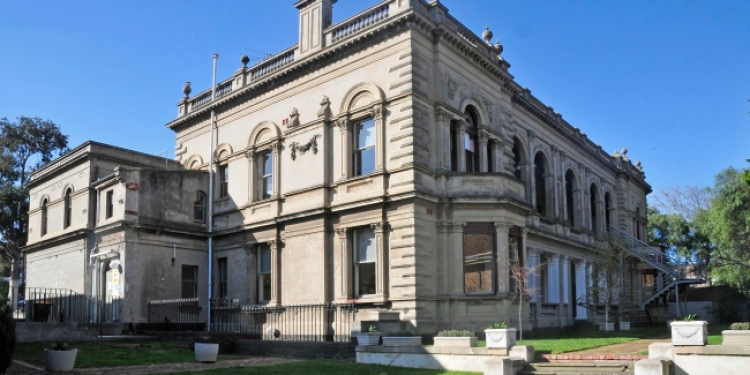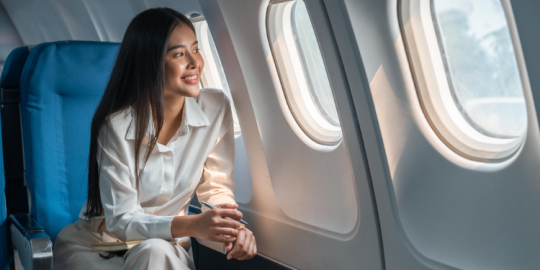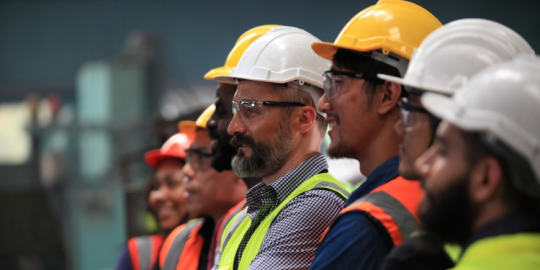Please tell us more about your professional background:
My entire career has evolved in the arts and culture sector. I have worked for many public organisations, mainly -but not exclusively- in the performing arts. In recent years, I chose expatriation, first in the United Kingdom, where I spent about 4 years as Cultural Attaché and then in Australia, where I have been managing the Alliance Française de Melbourne for eight months now.
What should we consider when moving to Australia?
I do not consider myself as an expat because my lifestyle and activity remained the same as it was in France. It does not mean there was no period of adaptation: when I started working in Melbourne, I first had to assimilate new cultural references before moving forward. This was an exciting period and forced me to both step out of my comfort zone and remain humble.
For me, coming to Australia, was like a trip back home. I was born and grew up in New Caledonia. I visited Australia and New Zealand many times. These countries are somehow familiar to me. From my experience, I would say that distance does not necessarily divide. For instance, I find that Argentina, where I lived for a year, or Brazil, which I visit regularly, have a close mindset to that of France, while United Kingdom is a much more confusing and exotic country to me.

What surprised you when arriving in Australia?
I thought that France was taking the lead in terms of regulation. I quickly realized that any behavior is assigned to limits in Australia. France is the realm of law: something vague and far away from people's daily routine. In Australia, this is just the opposite: the society is organized into its smallest detail.
There is also something related to rationality: my logical meaning is often challenged in this country.
Finally, I have developed a sound fear of shopping centers: I can lose myself in there for hours without ever finding what I was looking for.
How would you compare these two cities: Melbourne and Sydney?
In a few words, I would say that Sydney is the main business place in the region. Melbourne has a more European way of life, with its cafes, terraces and restaurants where the best cuisines from around the world compete. Melbourne has also a fine independent art scene and this unique architecture that happily blends ancient elegance with contemporary fashion.
Thousands of kilometers from France, how does the Alliance Française succeed in promoting the french culture?
The Melbourne Alliance Française is one among the 6 main centres in the country. Its strategic importance is recognized by the Ministry of Foreign Affairs and international development. We are a very united group.
I wish I could tell you that it is a daily struggle with an uncertain outcome. But I must confess that the amazing Australian interest to the French culture drives our project. Two flagship events maintain this predisposition: the Alliance Française French Film Festival, followed by 50,000 spectators every year, and the Berthe Mouchette competition, a French poetry contest which brings together 15,000 primary and secondary students living in the Victoria State. Furthermore, our organization is supported by a network of 30 Alliances Françaises located in the country.
Finally, the Alliance Française of Melbourne is working with the Government of Victoria and the city of Port Phillip on many educational and cultural topics. This makes us more visible among the population and brings more credibility to our actions.

What prompts Australians to enroll in your course or come to your events?
We benefit from the excellent image Australians have of France. We use it as a springboard to go beyond clichés and stay in motion. Secondly, learning French is a hobby for most of our students. We develop activities to keep the momentum and increase their regularity. Entertainment is key.
How do you see Australia in five years? What are the major ongoing projects? What are the main trends in society?
Answering this question would require to take a step back. As a new resident in Australia, I find that there are many similarities between Australia and New Caledonia. Those two countries owe their wealth to the exploitation of natural resources, which are progressively depleting. In a highly competitive world, Australia has become a democratic example for the Asia-Pacific region. Its life quality, the prestige of its universities and the uniqueness of its culture, contribute to its influence in the region. Areas for improvement would concern economic, environmental and technological innovation.
Tell us about a belief that is widely shared among the world but proved to be totally wrong:
Australia comes down to Sydney!

















Contact us to be featured in the Interviews section.
Participate